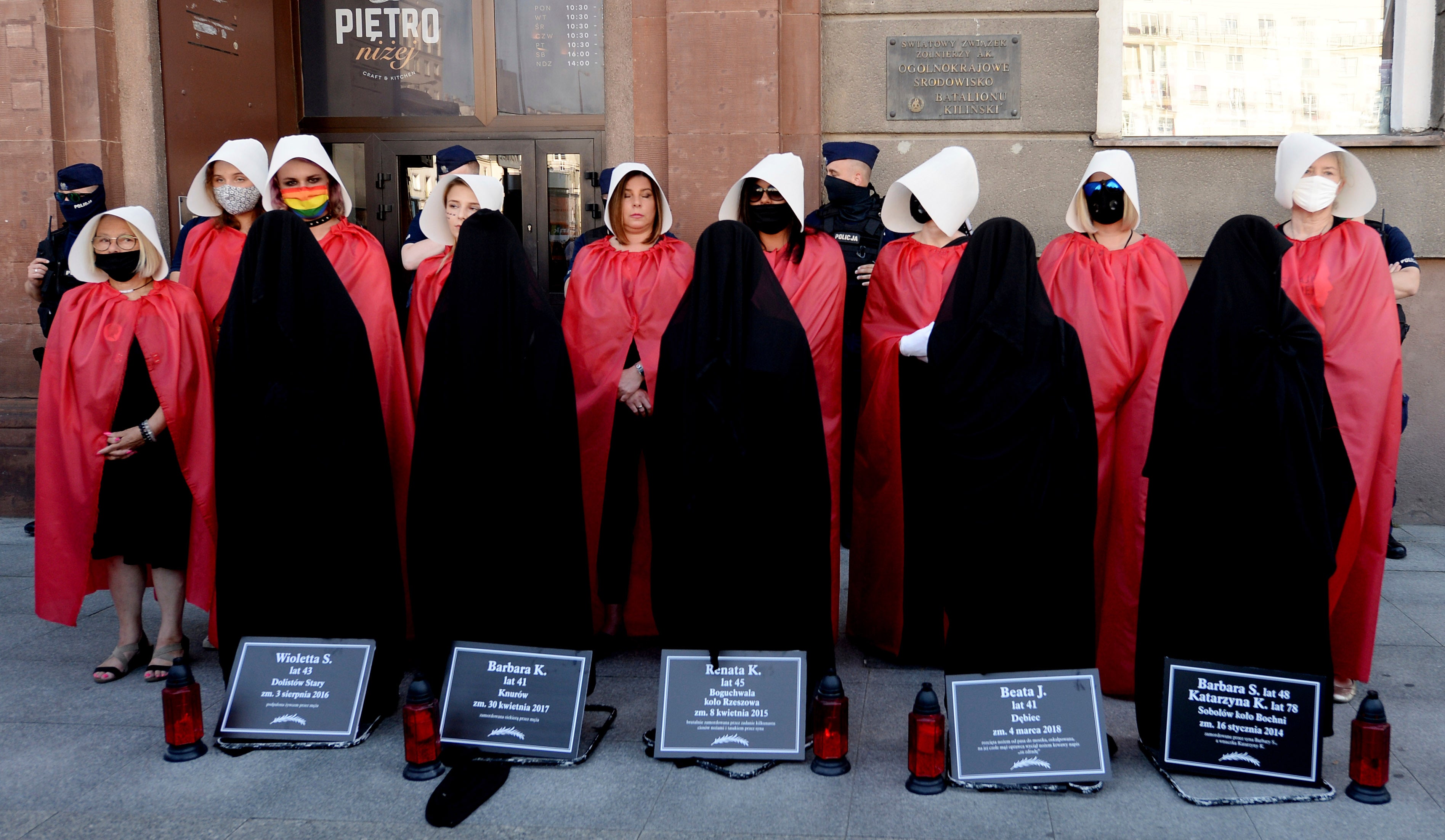Poles hold 'constructive' talks on domestic violence treaty
Experts from Europe’s leading human rights body say they have held “constructive” talks with Polish authorities on a treaty aimed at protecting women and girls from violence

Your support helps us to tell the story
From reproductive rights to climate change to Big Tech, The Independent is on the ground when the story is developing. Whether it's investigating the financials of Elon Musk's pro-Trump PAC or producing our latest documentary, 'The A Word', which shines a light on the American women fighting for reproductive rights, we know how important it is to parse out the facts from the messaging.
At such a critical moment in US history, we need reporters on the ground. Your donation allows us to keep sending journalists to speak to both sides of the story.
The Independent is trusted by Americans across the entire political spectrum. And unlike many other quality news outlets, we choose not to lock Americans out of our reporting and analysis with paywalls. We believe quality journalism should be available to everyone, paid for by those who can afford it.
Your support makes all the difference.Experts from Europe's leading human rights body said Friday that they have held “constructive” talks with Polish authorities on a landmark treaty aimed at protecting women and girls from violence.
A Council of Europe delegation visited Warsaw this week, some two months after Poland's justice minister threatened to pull out of the treaty, known as the Istanbul Convention.
It was not clear if the productive nature of the talks described by the Group of Experts on Action against Violence against Women and Domestic Violence indicated that Poland's conservative government intends to remain in the treaty.
The Istanbul Convention, named for the city where it was opened for signatures in 2011, is aimed at protecting women from domestic abuse and other violence. It has become a target for populist and nationalist governments that argue the accord poses a threat to “traditional families” due to its premise that violence against women is often rooted in cultural traditions.
Polish Justice Minister Zbigniew Ziobro's threat in July to quit the treaty triggered street protests by women and exacerbated ideological tensions between liberals and conservatives that were already at a boiling point over LGBT rights.
Poland's potential withdrawal from the Istanbul Convention also carried the risk of widening the rift between Poland and some of its European Union partners, which are concerned about a perceived illiberal drift under the nationalist government.
Prime Minister Mateusz Morawiecki asked the nation's Constitutional Tribunal to study the convention to give its opinion on the pact.
The experts’ visit this week was planned before Ziobro threatened to pull out. They are assessing whether Poland’s police, judiciary, shelters for domestic abuse victims and other relevant institutions work effectively to ensure the protection of women.
One area they said needs work is the rape laws, a problem highlighted when a Polish court last month ruled that a 14-year-old girl had not been raped because she didn’t scream.
The move by the justice minister and Morawiecki's counter-move came amid a power struggle between the two for future control of Poland's political right as the 71-year-old ruling party leader, Jaroslaw Kaczynski, plans to step back from frontline politics.
Simona Lanzoni, the second vice president of GREVIO, which is the acronym for the group of Council of Europe experts that monitors compliance with the treaty, said the treaty does not seek to dictate whether “to be traditional or modern.”
“The question of the Istanbul Convention is to protect women inside a family or outside a family from violence,” Lanzoni said at a news conference in Warsaw.
The Council of Europe is an intergovernmental body that includes 47 nations. To date 34 countries have ratified the Istanbul Convention.